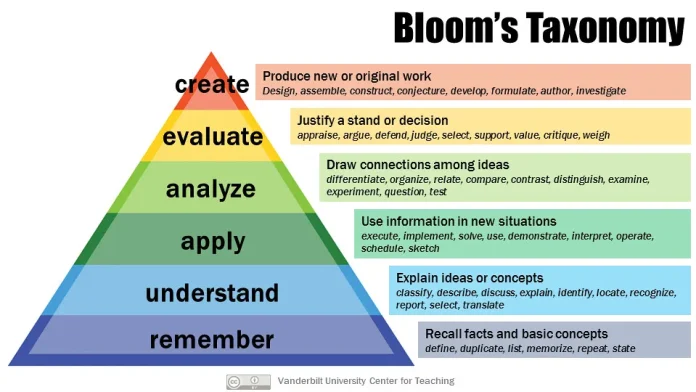What Should Be the Foundational Knowledge of AI Today?
By SwanzaGroups
In today’s rapidly evolving digital world, the question of what defines foundational knowledge has taken on new urgency. As an educator, researcher, and parent, I often reflect on how Artificial Intelligence (AI) is transforming not only industries but also the very purpose of education itself.
With AI advancing at unprecedented speed, we must ask: What exactly constitutes foundational knowledge in AI today?
Rethinking Traditional Learning Frameworks
Historically, foundational knowledge was defined by a deep understanding of core theories, principles, and concepts-an idea famously captured by Bloom’s Taxonomy, a framework developed in the 1950s to classify educational objectives into six hierarchical levels of thinking:
-
Remembering: Recalling facts and basic information.
-
Understanding: Explaining concepts and ideas.
-
Applying: Using knowledge in new situations.
-
Analyzing: Breaking information into component parts.
-
Evaluating: Making judgments based on evidence.
-
Creating: Generating new ideas, products, or methods.
However, modern educational discourse is shifting. Today, foundational knowledge must go beyond memorization or comprehension – it must emphasize adaptability, critical thinking, and the practical application of AI in real-world contexts.
Balancing Theory and Practice in AI Education
This leads us to a crossroads:
Should foundational AI education focus primarily on the technical mechanisms of algorithms, neural networks, and machine learning models — or should it center on practical use and the ethical implications of these systems?
From my experience teaching IT, this is a genuine paradox.
-
A purely practical curriculum risks becoming obsolete as technology evolves.
-
A purely theoretical one leaves learners unable to apply their knowledge effectively.
The goal, therefore, must be balance – blending technical understanding with hands-on experience and ethical awareness, ensuring learners can adapt and remain relevant in an ever-changing digital landscape.
A Global Example: The UAE’s Bold Approach
A recent example that highlights this shift is the United Arab Emirates’ national AI education initiative.
The UAE has become the first country to make AI a mandatory subject for all school grades. Beyond that, the government has granted citizens free subscriptions to ChatGPT Plus, democratizing access to AI tools and promoting widespread digital literacy.
These initiatives reflect a forward-thinking model: building an AI-literate population capable of engaging with technology critically, creatively, and responsibly.
Defining Foundational Knowledge in AI Today
Based on current global trends and research insights, foundational AI knowledge today should integrate three key pillars:
-
Technical Understanding: Knowing how AI systems work – from data processing to neural network training.
-
Practical Literacy: Applying AI tools effectively in everyday tasks, workplaces, and learning environments.
-
Ethical and Critical Awareness: Understanding bias, data privacy, environmental impacts, and the social implications of AI.
In essence, foundational AI knowledge must help individuals become not just consumers of technology but thoughtful contributors to an AI-driven society.
Final Reflection
As a parent, I want my child to grow up with the skills to adapt, think critically, and innovate responsibly.
As an educator and researcher, I believe that AI education must evolve with the same agility as the technology itself.
The future of learning lies in combining deep understanding with creative application – nurturing generations who are not just fluent in technology, but capable of shaping it with wisdom and purpose.
